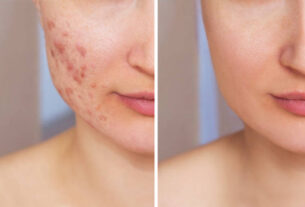Imagine a world where age does not define you, where the wrinkles of time could be smoothed away, and the sands of life could be turned back. For centuries, this fascinating idea has captured the human imagination. While we may not possess the mythical Fountain of Youth, the phenomenon known as “Benjamin Button Disease” offers a glimpse into a reality that seems straight out of a science fiction novel. In this article, we will explore the mysterious world of Benjamin Button Disease and its profound implications on human existence.
Page Contents
What is Benjamin Button Disease?
Benjamin Button Disease, scientifically termed as Progeria, is a rare genetic disorder that accelerates the aging process in affected individuals. This condition was brought to public attention by the 2008 movie “The Curious Case of Benjamin Button,” starring Brad Pitt. Although the movie portrayed an extreme and fictional version of this ailment, Progeria is indeed a real and rare condition.
The Genetic Underpinnings
Progeria is caused by a genetic mutation, specifically a mutation in the LMNA gene. This mutation leads to the production of an abnormal form of a protein called progerin. Progerin disrupts the normal functioning of cells, leading to rapid aging and a host of associated health issues.
Symptoms of Benjamin Button Disease
If your child is diagnosed with progeria, their symptoms typically manifest in the period preceding or around their first birthday. Although they may appear healthy at birth, rapid aging will become evident as time progresses. It is probable that they will experience the following symptoms:
- Rapid Aging: The most notable symptom is the rapid aging of the body, including wrinkled skin, baldness, and joint stiffness.
- Cardiovascular Issues: Progeria patients often suffer from cardiovascular problems, which can lead to heart attacks or strokes at an early age.
- Growth Retardation: They experience severe growth retardation, resulting in short stature.
- Hair Loss: Hair loss is a common characteristic, and affected children often lose their hair at a young age.
- Loss of body fat: Patients lose body fat in this disease.
- Protruding eyes: Protruding eyes, also observed in Benjamin Button Disease, refer to a condition in which a person’s eyes appear to be pushed forward from their normal position within the eye sockets.
Prevalence and Diagnosis
Progeria is extremely rare, with an estimated prevalence of about 1 in 20 million births. It is usually diagnosed in early childhood due to the distinctive physical characteristics and symptoms. Genetic testing can confirm the presence of the LMNA gene mutation.
Coping with Progeria
Coping with Benjamin Button Disease is a tremendous challenge for both the affected individuals and their families. The rapid aging and associated health issues require constant medical attention. While there is no cure for Progeria, various treatments and therapies can help manage its symptoms and improve the quality of life.
The Scientific Quest
Scientists and researchers from around the globe are committed to uncovering the enigmas surrounding Progeria. Their efforts not only contribute to grasping this condition but also offer valuable insights into the overarching aging phenomenon. The study of Progeria has yielded significant advancements in genetics and the science of extending human lifespan.
Implications for Aging Research
Progeria offers a unique opportunity to explore the fundamental processes of aging. The genetic mutations that cause rapid aging in Progeria are relevant to the aging process in all humans. Understanding these processes may one day help us delay or even reverse the aging process, bringing us closer to the dream of turning back the clock.
Social and Ethical Considerations
The concept of reversing aging raises numerous ethical and social questions. How would societies adapt to potentially extended lifespans? What ethical concerns arise when individuals can seemingly reverse the aging process? These are complex issues that will require careful consideration in the future.
Average life of people with progeria
Progeria typically results in a life span of around 13 years, with some individuals living into their 20s, but it remains a fatal condition.
Progeria, Benjamin Button Disease Treatment
Benjamin Button Disease, Progeria is a condition that is not curable, but there are treatment options available to help manage the disease. Ongoing research has uncovered several promising drugs that may be beneficial.
Children with progeria may undergo treatment to address complications associated with the condition, such as the hardening of arteries. For instance, a doctor might recommend therapies such as aspirin, statins, physical therapy, or other suitable interventions for your child.
Conclusion
In a world where the aging process is considered irreversible, Benjamin Button Disease, or Progeria, stands as a unique anomaly. While it is a rare and challenging condition, it has much to teach us about the mysteries of aging. As researchers continue to unravel the genetic underpinnings of this disease, we may find ourselves one step closer to turning back the clock on the relentless march of time. The dream of a world where age is but a number is no longer confined to the realms of fiction. Progeria shows us that, in the world of science and human determination, almost anything is possible.



